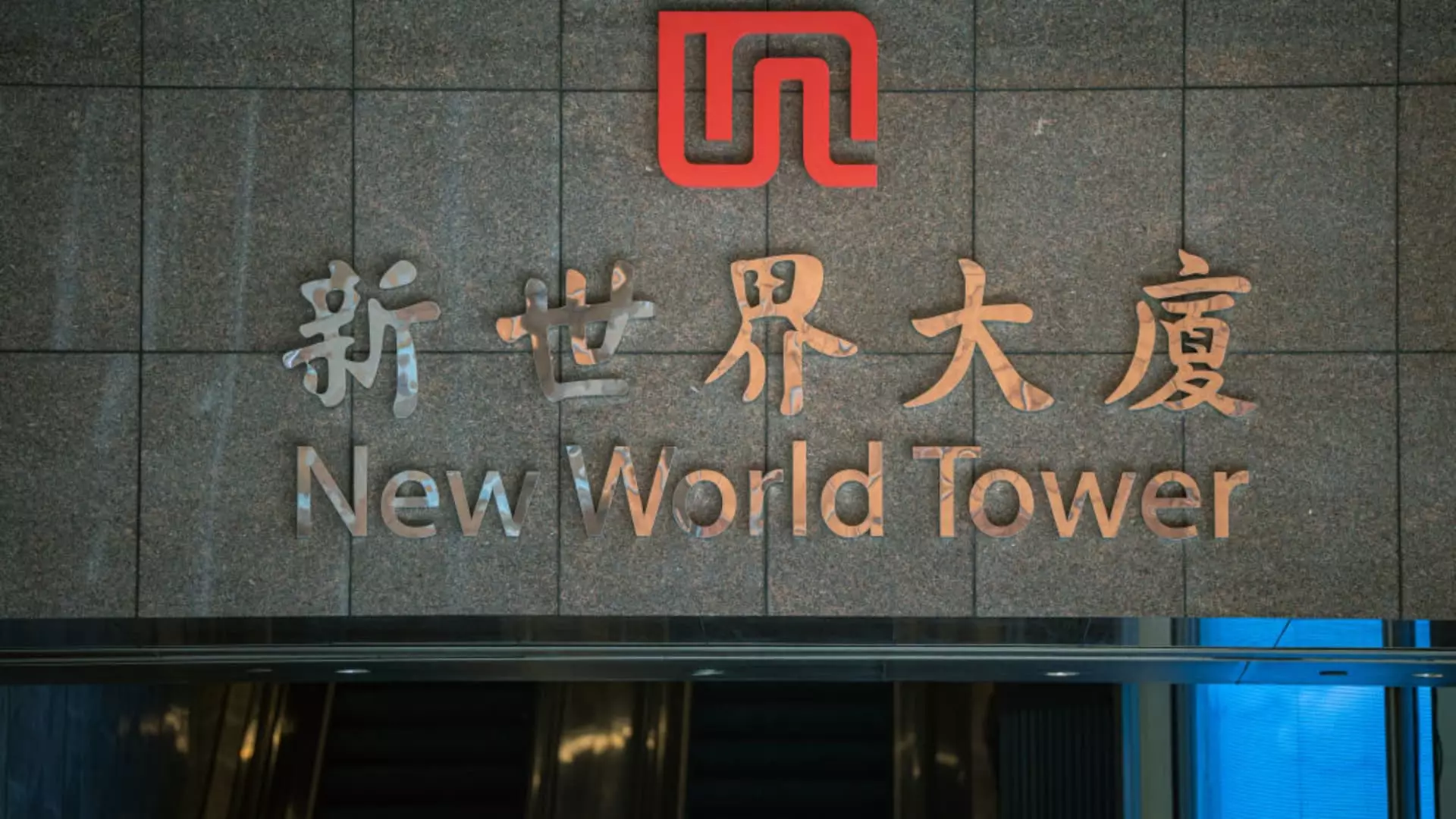The resignation of Adrian Cheng from New World Development, a prominent real estate firm in Hong Kong, has sparked a dramatic shift in market dynamics, reflected in a notable 23% increase in the company’s stock price following the announcement. Cheng, a significant figure within the founding family, stated his intention to focus on “public services and other personal commitments.” The immediate reaction in the market indicates a robust sentiment among investors regarding the potential impacts of leadership changes at the company. Eric Ma Siu-Cheung, who previously served as Chief Operating Officer, has been elevated to the position of CEO, marking a significant transition that is rarely seen in family-run enterprises within the region. This move is viewed as an opportunity to introduce fresh perspectives in a company navigating precarious market conditions.
Financial Struggles Underlying Recent Optimism
Despite the surge in share prices, the underlying financial health of New World Development remains concerning. A recent report highlighted projected losses for the financial year ending in June, approximated between HK $19 billion ($2.4 billion) and HK $20 billion ($2.6 billion). This staggering forecast is a product of declining sales, investment losses, and severe impairment charges, casting a shadow on the company’s future. Hong Kong’s real estate market, riddled with ongoing challenges, reflects a broader trend impacting developers on both local and mainland levels, where significant debt levels continue to strain business operations. Such stark realities underscore that while leadership changes can inspire confidence, they must be complemented by effective strategies to address deeper financial woes.
Alicia Garcia-Herrero, chief economist for Asia Pacific at Natixis, emphasizes the importance of robust corporate governance in navigating difficult market environments. Her comments highlight a critical perspective on the dynastic leadership models prevalent in many Asian firms, particularly in Hong Kong. The traditional reliance on familial ties for management roles has been questioned in light of challenging market conditions that demand competent management over mere lineage. This shift in viewpoint suggests that stakeholders are starting to prioritize skill and effective governance over historical practices. The growing consensus may drive long-term transformations in how these companies are structured and led, leading to a more sustainable business environment in the face of adversity.
The recent upsurge in New World Development’s stock prices cannot be viewed in isolation; it is also reflective of broader market trends. Stimulus measures introduced by China’s central bank have generated optimism across Hong Kong and Chinese equities. These initiatives aim to address the ongoing challenges facing the real estate market, and government leaders have made commitments to implement policies that bolster fiscal and monetary support. This proactive approach is essential in stabilizing the sector and may play a vital role in restoring investor confidence. The simultaneous rally in stocks suggests that market participants are hopeful that these policy shifts will mitigate the financial pressures felt by companies like New World Development.
While the recent developments at New World Development signal a potentially revitalizing shift in leadership, there remain substantial financial hurdles to overcome. The interplay between governance, financial health, and external policy measures will likely shape the company’s trajectory in the months to come. The market’s response reflects a complex landscape where optimism coexists with underlying turmoil, emphasizing the need for strategic foresight in a rapidly changing economic environment.

